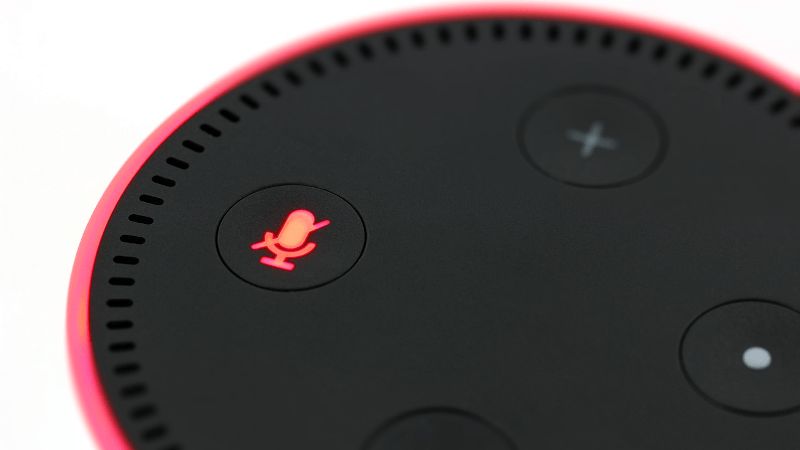
Quit Buying Devices Designed to Track and Spy On You
Since the release of Apple’s Siri in 2010, it seems like companies have become increasingly interested in selling us products that are always listening, watching, or tracking us. Between the voice activated assistants on our phones, smart home devices, doorbells with cameras and microphones, and tracking tiles or tags, we’ve quickly adopted many devices that we think make our lives simpler. The problem that most of us overlook and/or don’t take seriously is the fact that these same devices and apps are collecting more data on us than ever before. You might not care about the data collection, and you might be comfortable gaining convenience at the cost of privacy and security. Maybe it is time to rethink that a little bit?
Any Device with a Microphone Hears EVERYTHING
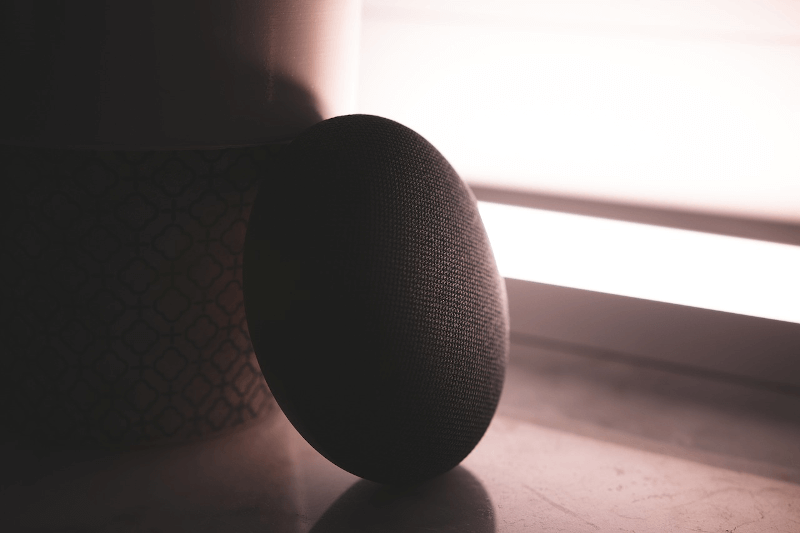
Have an Android or Apple device? How about an Amazon Echo, Google Home, or other equivalent for your home? You know how you can say a keyword and your device will activate the voice assistant? Think about how that works for a minute. There’s no way to only listen to you when you say the keyword. Those devices are listening to you ALL the time. You might think “Well, it probably just ignores everything until it hears the keyword, right?” Well, not exactly.
Let’s look at this from another angle, too. You ever talk about a product in the presence of these devices then notice you see ads for the next time you get on the web? Also not a coincidence, and hopefully you’re starting to see the light. It is no secret that ads are one of the many ways that tech companies make money. Did you really think evil companies like Google or Amazon would just ignore everything their devices hear from their users? Heck no. Amazon wants to sell you things, so they’re going to use everything they hear from you to sell you more things. Google wants to show you targeted ads you are more likely to click, so the same goes for them.
Google is particularly bad, though. They are also trying to profile you as outlined in their FLoC program, and you can read more about that HERE. We already know that our web activity is being used to put us into cohorts, but why should we assume that our voice data is off limits? Aside from that, Google has been exposed manipulating search results to influence you to view certain current events and political issues. In fact, some have even noticed that they get different Google results than others when the same phrase is search. That’s because Google has learned enough about you to conclude what they need to show you to get you to agree with what they want. Tinfoil hats on for a minute; Google wants power and money. If the right people stay in power, then Google spends less time and money on lawsuits, keeps from being broken up, and continues handing your data over to the government without a warrant in exchange.
Apple isn’t free from criticism here. Siri has been known to record your conversations which are later listened to by contractors. They’ve even reported people to law enforcement based off what they heard in these conversations. Apple likes to tout that it is necessary for Siri to occasionally record you to help improve dictation. There’s a valid argument for that, but let us not pretend that these tech monopolies won’t use every bit of that data to make another buck. You don’t become a trillion dollar company be being nice and following all the rules. Samsung’s Bixby, Google’s Assistant, Apple’s Siri, and Amazon’s Alexa are all guilty of this. By now, they probably know more about you than you do.
Voice assistants from big tech companies are always a bad idea to have. You can disable the assistant on your phone or tablet via the settings, and you can usually turn off the “always listening” feature of those home assistant devices only making them possible to use if you press a button on them first. Honestly though, you are better off disabling Google Assistant completely (if you aren’t willing to just de-Google your phone). I’m not sure if you can do the same to Bixby and Siri, but I would have to imagine there is some sort of law making that a requirement…for now.
Any Device with a Camera is Watching
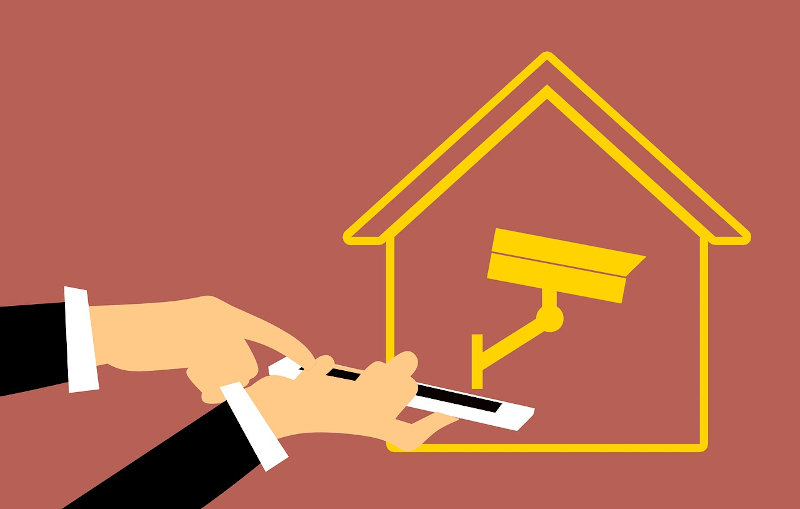
Smart cameras are another thing you should be concerned about if you care about your privacy. They are always watching, always streaming data to the connected cloud service so you can view them when you are away from home, and those streams are less secure than you might think. In fact, Ring video footage is handed over to the police without your knowledge or a warrant. On top of that, if you do willingly share your video footage with law enforcement, they share it with countless other agencies. You might as well assume that everything that happens in the view of a smart camera is seen by others. If you’re using these devices, be careful where you pick your wedgie, changes clothes, or do more unspeakable things because there might be people watching and laughing!It goes deeper than that, though. Ever use your face to unlock your phone or computer? Now you’ve given your facial scan to either Apple, Google, or Microsoft. It is already known that Apple shares your face scan data with apps that get permission. It is safe to assume that Google and Microsoft have stored and are sharing your face scans as well. Fingerprints data from using your fingerprint to unlock a device isn’t exempt, either.
Your Location is Never a Secret
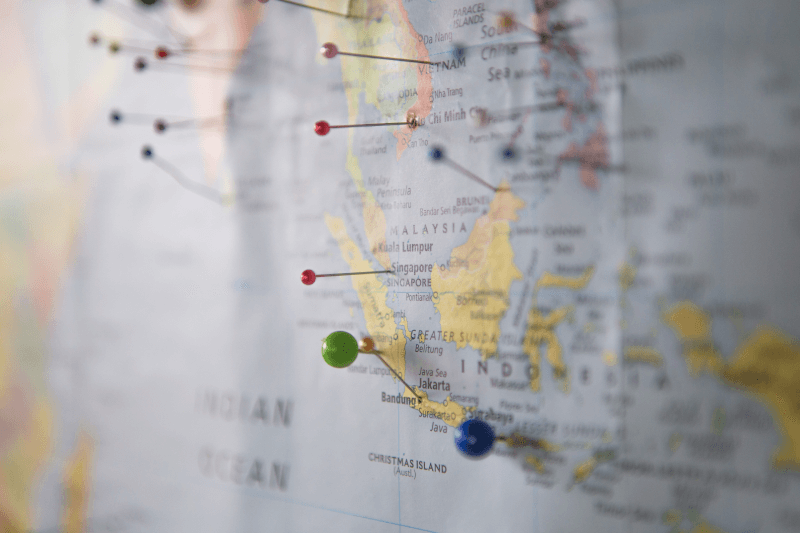
If your phone is with you, then you are being tracked. I feel like I can say that we all know that by now? This presents problems that people don’t think about, though.
If you have Google Maps installed on your phone, there is a record of where you go each day. We’ve already talked about how Google is handing over voice recordings to law enforcement without a warrant, so let’s go through a little scenario in our minds regarding why sharing your location data could be a bad thing. Let’s say that on your way home last Wednesday, you stopped at a gas station to get some gas. Ten minutes after you left, that gas station was robbed and the robber hit a pedestrian with their truck while trying to get away from there quickly. Both you and the robber drive a similar year F-150 that is the same color. The police get location data from Google and can link you to the scene of the crime near the time it happened. Then, they realize your vehicle also matches the description of the robber’s vehicle as well. Next thing you know, a knock at the door leads to you spending at least one night in jail, and you now have to fight to prove your innocence. It sounds like a long shot; I know. The thing is, there have been wrongful arrests made using Google location data from a phone. It can and does happen.
Then there's Apple Air Tags. I honestly don't understand why anyone would need these, but that's neither here nor there. From what I've read about these little devices, they create a mesh network between them and other Air Tags and maybe even Apple Devices. That approach will certainly make these things trackable without needing GPS or a SIM card, but it potentially opens some serious privacy flaws as well. First, the obvious one, but this allows Apple to track you if they want and, more than likely, they will hand that tracking data over to any government authority that asks for it whether they have a good reason or not. Second, these things could potentially be used to stalk other people without their knowledge. This will end up being an enabler for many violent and sexual crimes in the future, mark my words. Lastly, the communication protocol used between these devices will be hacked eventually and other folks will be able to track you and your stuff. So what's the simple solution here? Well, that's easy. KEEP UP WITH YOUR OWN CRAP WITHOUT NEEDING THESE STUPID DEVICES TO DO IT FOR YOU! I mean seriously, is there that much of a need for these things. Don't lose your crap and do a good job preventing others from stealing it. Problem solved and money saved!
Lastly, let us not forget to mention your smartwatch or fitness tracker. Many of these devices now come with GPS and cellular radios so you can use navigation or stream music while on a run, bike ride, etc. This, yet again, also means that you have yet another device that can be used to pinpoint your location, learn your habits, and more. I wouldn't even be surprised if the companies that produce these devices will eventually share your activity levels, heart rate, etc with your healthcare providers which could lead to higher insurance premiums if you aren't in great shape. They are bad for privacy, have security flaws, and the ways the data collected from them could eventually be used are unsettling!
Everything Can Be Hacked
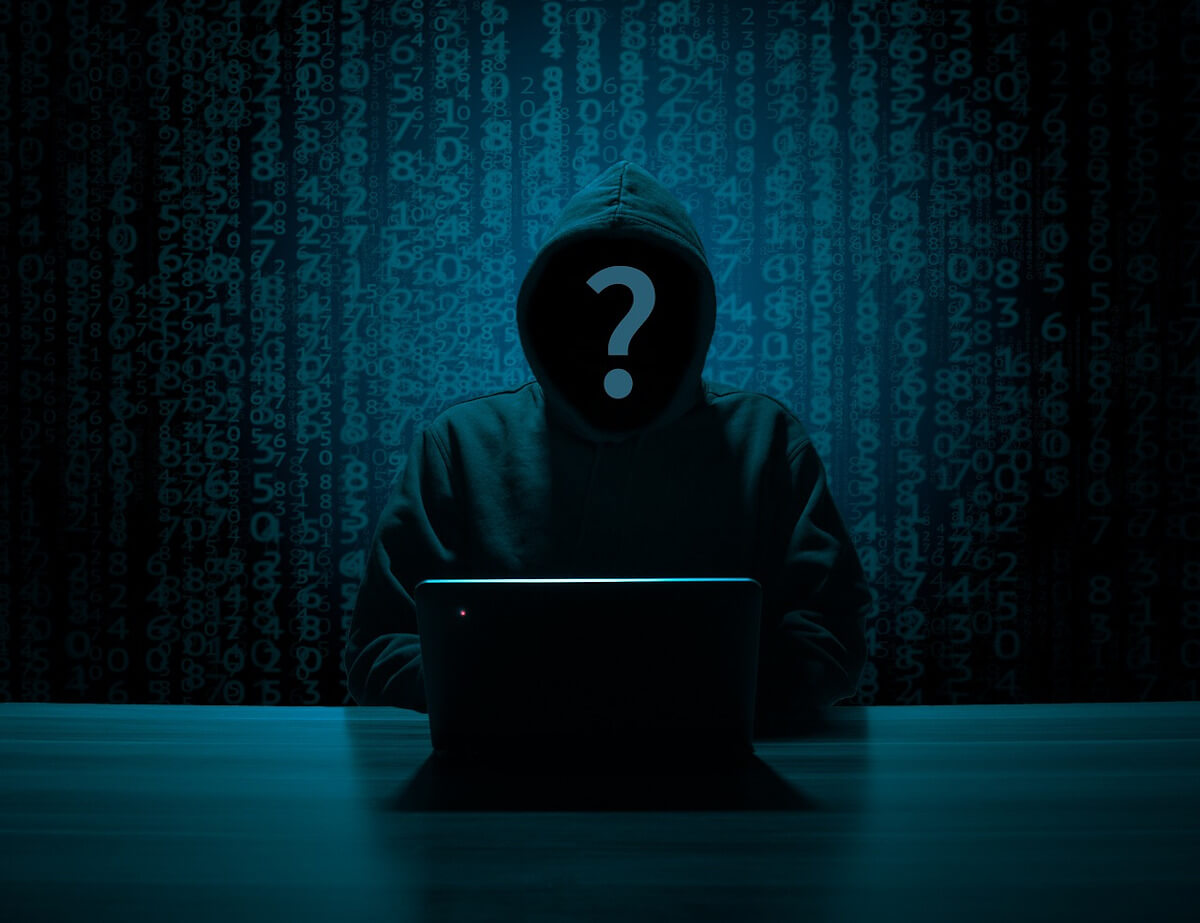
So far I’ve barely scratched the surface of malicious and unfortunate things that can be done with the voice, camera, biometric, and location data that is being mined from you like gold. I was going to go much deeper with my examples, but after doing a handful of searches to gather data, I quickly realized that there are just too many bad things that have happened from these kinds of data collection for me to cover in this post. There is yet another risk associated with data collection though, and it is hacking.
Every company gets hacked. This includes Google, Facebook, Microsoft, Apple, Amazon, etc. This is a cold, hard fact that is unavoidable. The bigger a company is, the more there is to gain from hacking it. Often, when a big-tech company is hacked, it is swept under the rug and kept quiet so you continue to feel safe using their product and services. It is almost like the mainstream media companies run cover for the tech behemoths by not running incriminating stories on them! ;)
When one of these companies is the victim of a hack and you do actually hear about, the primary focus is always about usernames and passwords. A series of articles will come out telling you to “change you password” while downplaying the severity of the hack. Imagine what could happen if all of this location, biometric, voice, and camera data is leaked or sold. At the very least, you would worry about an incriminating picture from your camera being exposed or a voice recording of you saying something that can get you in trouble with your job, a friend, etc. Potential stalkers could use your location data to quickly learn your habits and figure out where and when you are typically most vulnerable to being watched or attacked. Your biometric data could be used to impersonate you, gaining access to your accounts. The sky is the limit here, and the amount of damage that can be done to your life is immeasurable.
Always think about WHEN your data gets leaked. It is going to happen. Personally, I like to minimize what can be collected on me by being incredibly choosy about what devices, apps, service, etc I use. There are worse things that can come from a hack than your online accounts being accessed by someone else.
Some Devices Have Created Their Own "Skynet"

You may or may not have heard that ALL Amazon devices are now acting as one big network. The program is called "Amazon Sidewalk" and is supposed to help create smart neighborhoods. The idea is that your Amazon devices will share some of your bandwidth with other Amazon devices in the area that it can communicate with via 900MHz radios and bluetooth. This would allow you to do things like track your Tile tracker if you dropped it down the street while on your walk even though it is too far out of range to be tracked under normal circumstances. Sure, this sounds nice. But let's consider that we are yet again in another scenario where your device is talking to and sharing bandwidth with other people's devices. There's a big security risk there. Plus, this also enables Amazon to track you even better than they already do. For more information on how and why you should opt out of Amazon Sidewalk, you can check out this article.
I've already mentioned Apple's Air Tags, but they are guilty of this same type of multi-device communication. What little convenience they might ever provide you is not at all worth the privacy and security being sacrificed to gain it!
Here Are Some Alternatives

You’re probably thinking “Ok, fine. Nothing is safe, but what am I supposed to do about it?” Well, there are always safer alternatives out there.
First of all, get rid of your Google Home and Amazon Echo/Alexa devices. They are TRASH! You don’t NEED to access information or control a light in your house with your voice. It’s a parlor trick that saves you very little, if any time. Turn your smart home devices on and off using the app on your phone, and search for things in a browser window (and preferably not in a Chrome, Edge, or Safari window as they are still feeding the beasts). I feel like the novelty factor of this technology should have worn off by now. If you just HAVE to have a voice assistant at home, check out the open source alternatives I have listed HERE .
The same goes for using the voice assistant on your phone. STOP using them! There is no real alternative here, but why do you think you need this functionality? Half the time, the darned things misunderstand you and return terrible results or don’t do what you asked. Just stop using them. Again, they are a parlor trick given to you for free for the sake of collecting more data.
Stop buying Ring (Amazon) and Nest (Google) devices for your home. They have good cameras that are simple to install and use which allow you to monitor your home. You can use cheaper IP cameras and a cloud service of your choice to get and save security camera recordings. If you want to access the camera streams while on the go, you can even use port forwarding to make the cameras accessible outside of your home. My approach for a while was to have some Foscam IP cameras hooked up that were accessible via my Home Assistant setup which was being given an external web address using the Nabu Casa service. I even had it setup where my motion sensors would alert me so I would know to open the Home Assistant website on my phone to look at my camera feeds. Heck, you can even take an old Android phone you might have paying around and use it as an additional security with this approach (just don’t put it in your window as I learned the hard way that the heat will eventually make the battery swell and possible explode). You can even get a closed-circuit camera system and do similar things with that setup making it accessible from outside your home. The one problem that all of these solutions has is that they require a little research and setup versus buying a Ring or Nest device. Still, how much is your privacy and security worth? I have a small list of open-source home automation services you can use HERE.
Stop using biometric scans to unlock your devices, too. I mean, is typing in a 4 digit PIN really that much slower and less convenient?
Turn off your voice assistants in your phone/tablet device settings. The method for doing this will differ from device to device, but a quick search should be all you need to find the method for doing so on your device and operating system version.
As for your phone collecting location, well that’s a tricky one. At the very least, you can turn of your GPS radio in the settings when you aren’t using GPS. I mean, how often do you actually use GPS outside of driving? To take this a step further, you can stop using Google Maps on your phone, too. The GPS mapping software I use is OsmAnd~ which is open-source and is not feeding your location data and searches to Google when using it. If you really want the best approach, you can de-Google an Android device depriving Google of any form of data collection, period! I have a post about that HERE.
Your data should be treated with caution. You should be picky about which company can collect data on you and how much they can collect. Tech companies have conditioned us over the past several years to mindlessly hand over all of these types of data to them in the name of convenience. Your data can be used against you, used to profile you, and even be leaked to the public, all of which can have unimaginable negative effects on your life.
It’s nearly impossible to stop 100% of these sorts of data collection, but you can definitely take steps to greatly limit and reduce how much is being collected. If nothing else, hopefully you have now been empowered to think about these issues with a fresh perspective and will always be thinking about what data is being collected and how that be bad for you in the future. Then you can improve your privacy one small step at a time!
Reevaluate Your Comfort Level With These Devices
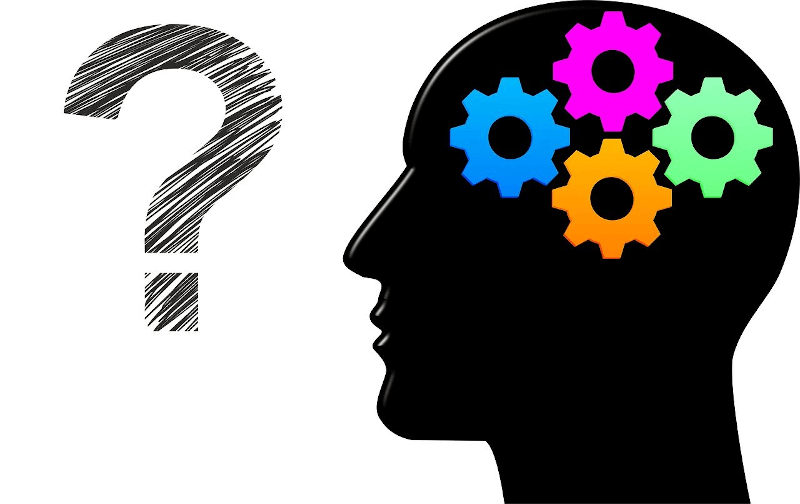
I'm not telling you to throw away all of your Amazon Echos and smart doorbells, but that's exactly what I did a couple of years ago. It's not a bad idea to do this, but not everyone cares enough about their privacy and security to take these kinds of measures. As always, I'm going to tell you that YOU have to decide what's best for you and what you are willing to do here. I merely hope that I might have provided you with some details and perspectives that you haven't considered before that will change the way you view many of the "smart" devices that add very little value to your life. You should decide how thick to make your own tinfoil hat!